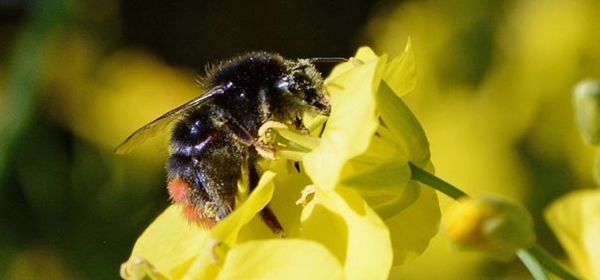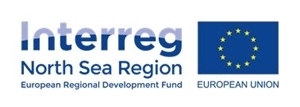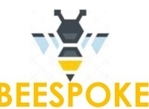
A NEW project that aims to reverse the declines of wild pollinators is set to receive a multi-million pound investment from the EU’s North Sea Region Interreg Programme.
BEESPOKE (Benefitting Ecosystems through Evaluation of food Supplies for Pollination to Open up Knowledge for End users) will look explore ways of increasing the levels of pollinators and crop pollination at local and landscape levels by providing land managers and policy makers with new expertise, tools and financial knowledge to create more sustainable and resilient agroecosystems.
With a total budget of £4.1 million pounds over a three-and-a-half-year period, the project brings together a wide range of partners, from policy makers to research institutes, to increase the diversity of insect pollinators and crop yields by 10%.
Scientists working on the project will develop bespoke seed mixes and habitat management guidelines to support the suite of pollinators required for 14 crop types across 72 demonstration sites.
Sites for each crop will showcase best management practices and training materials which will be developed for biodiversity monitoring and measuring pollination.
The same agroecosystems occur across the North Sea Region and transnational cooperation will also give economies of scale for development of these novel tools. The approach will empower land managers to adopt pollinator management as a routine practice, fostering a bottom-up, land manager approach, creating a legacy to ensure continuing improvements for insect pollination of food crops.
Project coordinator Professor John Holland, who is head of farmland ecology at the Game & Wildlife Conservation Trust (GWCT), said: “We know that wild pollinators are declining because of loss in flower-rich habitats – and this needs changing.
“We will work closely with farmers to develop solutions that not only help the bees but will also improve their crop’s pollination.”
The GWCT, a Fordingbridge-based charity which aims to make the countryside rich in game and wildlife, is the project’s lead partner.
The other partners include; NIAB EMR (UK), University of Kent (UK), Universiteit Gent (BE), Vlaamse Landmaatschappij (BE), Inagro VZW (BE), Provincie Fryslân/Silence of the Bees (NL), Stichting Van Hall Larenstein (NL), Cruydt-Hoeck v.o.f. (NL), Coöperatieve vereniging Coöperatie Agrarisch Collectief Waadrâne U.A. (NL), Københavns Universitet (DK), HortiAdvice A/S (DK), Sveriges Lantbruksuniversitet (SE), Odling I Balans (SE), Carl von Ossietzky University of Oldenburg (DE), Grünlandzentrum Niedersachsen / Bremen e.V. (DE).
Notes to editors:
BEESPOKE is carried out in the framework of the Interreg North Sea Region Programme (www.northsearegion.eu) under the Programme Priority 3 “Sustainable North Sea Region” and the Specific Objective 3.2 “Develop new methods for the long-term sustainable management of North Sea ecosystems”. The programme is funded by the European Regional Development Fund (ERDF) of the European Union.

